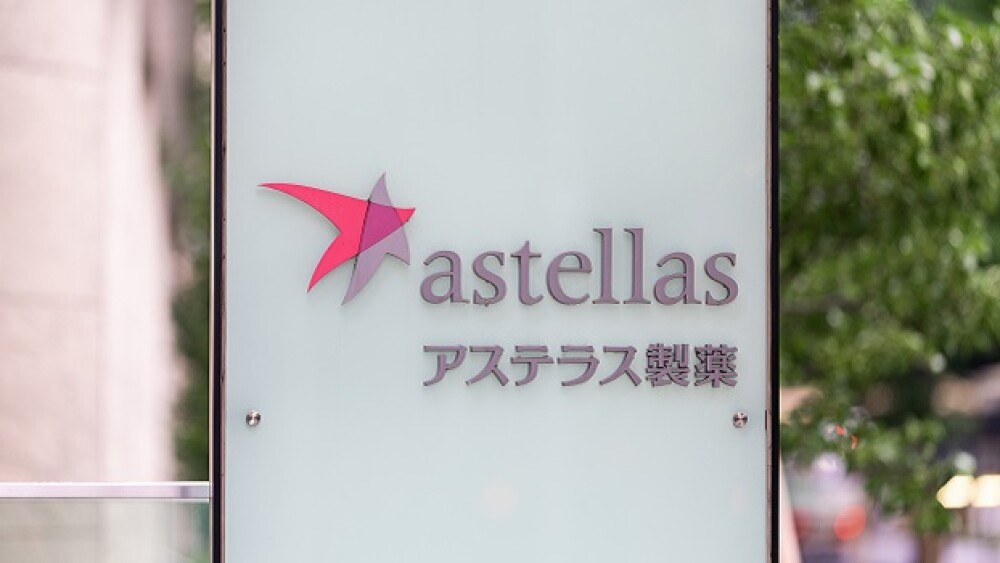Japanese biopharma scoops up Iveric’s investigational drug for age-related blindness disease. The drug, which trails Apellis’ Syfovre, is awaiting FDA approval with a decision expected by August.
Pictured: Astellas sign with logo/yu_photo/Adobe Stock
With less than a month at the helm, Astellas Pharma CEO Naoki Okamura has already closed his first deal. The Japanese biopharma announced on Sunday it will acquire New Jersey’s Iveric Bio for $5.9 billion to bolster its blindness and regeneration focus area.
Astellas will pay $40 per share for Iveric, and this will be Astellas’ largest acquisition. The boards of both companies have unanimously approved the transaction, but the deal still needs to be approved by shareholders and regulators.
The Iveric buy snags multiple programs for Astellas, including Avacincaptad Pegol (ACP, also known as Zimura) for Geographic Atrophy (GA) secondary to Age-Related Macular Degeneration, an irreversible eye disease. Astellas already has a GA candidate in its pipeline, currently in Phase I.
Iveric’s investigational complement C5 inhibitor is further down the line and is already under priority review by the FDA. The agency has set a PDUFA goal date of Aug. 19.
If approved, ACP will enter the market about six months behind its chief, competitor, Apellis. Apellis’ Syfovre (pegcetacoplan) was approved by the FDA as the first treatment for GA in February. The flexibly dosed drug is priced at $2,190 per vial, with dosing typically occurring every other month. Seeking Alpha estimated sales potential for Syfovre at around $2.63 billion per year for Apellis.
Neither drug is a cure for the age-related, blindness-causing condition, but both are designed to slow the relentless progression. While ACP inhibits C5, Syfovre targets C3 to regulate downstream immune response. Due to the size of the patient population and lack of treatments available, there could be enough room in the market for both therapies to become blockbusters.
Upon approval, ACP is anticipated to be a revenue generator to replace an expected decline in sales of Xtandi, Astellas and Pfizer’s prostate drug. Xtandi loses its patent protection in 2026 in Europe and Japan and in 2027 in the U.S.
The partners are expected to make a combined revenue of more than $2 billion this year. The drug’s high cost had activist groups calling for the federal government to exercise march-in authority and force the companies to lower their pricing. The government declined to do so in March.
Following a relatively quiet year, 2023 is already looking to be a more robust show of pharma mergers and acquisitions. Last month, GSK made a $2 billion play into the chronic cough market, acquiring Canadian biotech Bellus Health for its highly selective P2X3 receptor antagonist with best-in-class potential.
The Bellus buy puts GSK in direct competition with Merck, while Merck leaned into its immunology pipeline. The same week, the New Jersey-based pharma bought Prometheus Biosciences for a hearty $10.8 billion, scoring five clinical and pre-clinical candidates for inflammatory bowel and immune-mediated diseases.
In March, Sanofi announced its plans to acquire Provention Bio for $2.9 billion, snagging rights to its already approved stage 3 type 1 diabetes delaying drug. Tzield is the first-every disease-modifying treatment on the market for T1D.
Kate Goodwin is a freelance life science writer based in Des Moines, Iowa. She can be reached at kate.goodwin@biospace.com and on LinkedIn.






